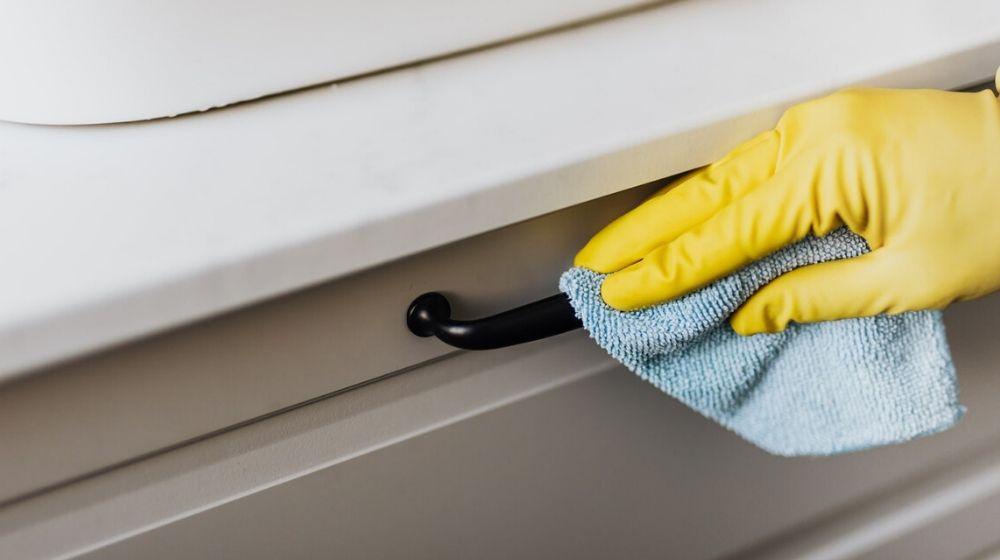The COVID-19 pandemic (coronavirus) has spared few industries. With physical distancing measures in place to curb the spread of the virus, many sectors have seen a significant impact, and that includes the real estate industry.
The good news? Buyers can realistically see a home, put in an offer and close on it — all virtually.
Things have certainly changed for real estate agents who must now adopt new ways of doing their jobs in order to minimize the virus spread and protect themselves and their clients. Let’s look at seven of the most obvious changes.
Editor’s note: Need a website? Get a great-looking site up quickly with Websites + Marketing. Includes IDX/MLS integration and easy marketing tools to get the word out about new listings.
Real estate agents are changing how they work
Canadian real estate markets are steadily reviving in many parts of the country, but buying and selling is a lot different than it was pre-coronavirus. And real estate professionals are adapting their operations accordingly.
Here are some ways that the process has changed, as well as tips for agents to uphold safety without sacrificing business.
1. Modified open houses
Some agents are pausing open houses altogether for the time being, while others are continuing with the traditional open house tactic, but with extra precautions in place.

Measures agents are adopting include:
- Allowing only one person to enter a home at a time
- Adding sanitation stations throughout homes
- Asking buyers to remove shoes and wear foot coverings
- Requiring they wear masks and gloves
Some real estate agents thoroughly disinfect homes at the end of a long day of frequent visitors.
Related: Where to find small business help in Canada
2. Online virtual tours
As an alternative to the traditional open house, many agents have now moved over to virtual open houses.
Using digital technology, real estate agents can put together life-like tours of homes.
These give buyers a way to scope out a property in depth before choosing which homes they'd like to visit in person. Luckily, there are several software tools available to make this easy for agents, such as:
- Realtours
- 3D Vista
Some agents are also marketing live virtual open houses a few days ahead of time, encouraging buyers to join them via Zoom call, Google Chat or other video conferencing tool.
All you need to do is provide a few details of the home beforehand, the date and time of the call, as well as a link to sign up or join.
Any buyer who likes what they see on the call will then have the option to visit in-person before the open house time slot comes to an end (with safety precautions in place, of course).
3. Realtor-based virtual tours

Rather than taking buyers to visit properties in person, some agents are conducting tours of homes themselves while video chatting with their clients.
Agents are essentially doing the tour on behalf of their clients while answering questions from buyers on the spot and fulfilling requests to check out specific areas of a home.
They’ll walk through the front door, stroll through each floor, and take a tour of the outside of a home, helping buyers feel as if they’re actually there.
4. Requiring signed waivers
Some agents are asking buyers to sign waivers before entering a home, whether for an open house or a standard showing.
These disclosures require visitors to affirm they do not have any symptoms associated with the coronavirus or have not had any connection to anyone who is showing symptoms. Even agents themselves may have to sign such disclosures to satisfy the requests of sellers.
5. Pre-qualifying buyers
Traditionally, any buyer represented by an agent can schedule a showing for a home listed on the market. And any person off the street can visit an open house.
Today, some sellers insist buyers be pre-qualified before they step foot through the front door.
This can help minimize unnecessary traffic from people who will likely not wind up being the successful buyer.
For instance, listing agents may request pre-approval letters to be sent to their office prior to scheduling any showings. Buyer agents may also be asked to go over any seller disclosures or pre-inspections made available. If there's anything on that document that a buyer may consider a deal-breaker, then a showing won't be necessary.
Efforts like these are meant to help sift through potential buyers and encourage only those who are financially qualified and comfortable with the current state of the home to visit.
6. Electronic closings
These days, a traditional signature is not always needed to seal a real estate deal. Contracts can be closed electronically with an e-signature.
That goes not only for a real estate deal, but a mortgage as well.
Thanks to the Electronic Commerce Act, 2000, parties can use e-signatures to sign purchase and sale agreements and make them legally binding.
7. Single-person closings
Much like open houses and showings that allow one person to enter a home at a time, some closings are being held with a minimum number of people present.
Each buyer will sign all required paperwork separately, sometimes using a pen they bring in themselves. The agent stands a few feet away to respect the six-foot physical distancing protocol.
A positive outlook
Luckily, the effect of the coronavirus on the real estate market isn't as dire as it has been on many other industries. According to a recent Royal LePage House Price Survey and Market Survey Forecast, the aggregate price of homes across Canada is expected to remain stable throughout the current health crisis.

In addition, Canada is doing relatively well in its fight against COVID-19 compared to other nations, including our southern neighbours. Restrictions are already easing in provinces across the country, which could help home prices end off the year relatively flat.
But even though sales volumes may soon return, the traditional way in which home homes are bought and sold will be different. Some of the changes to real estate may be temporary, but others may be here to stay.
Final thoughts
It’s a different world out there right now, and some modifications that real estate agents are making today might not necessarily be temporary. Only time will tell how long safety precautions will need to be taken. In the meantime, agents are doing their part to ensure a safe environment to keep business humming.
The information contained in this blog post is provided for informational purposes only, and should not be construed as an endorsement or advice from GoDaddy on any subject matter.






